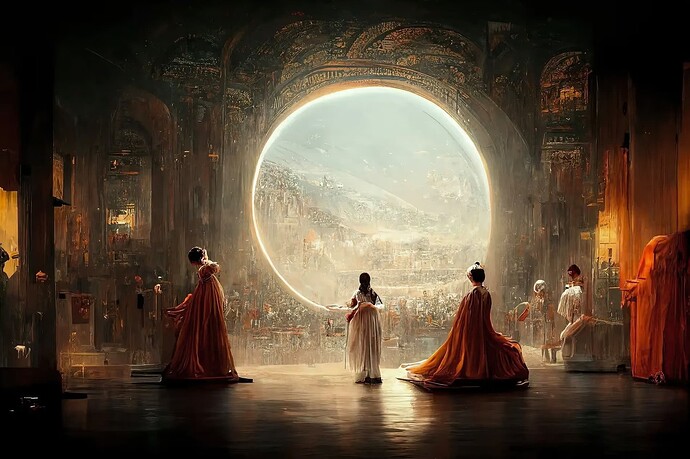The integration of AI in art encounters a setback following a ruling that an award-winning image cannot be copyrighted due to insufficient human involvement in its creation.
The decision, issued by the US copyright office review board, determined that Théâtre d’Opéra Spatial, an AI-generated image which claimed first prize at the 2022 Colorado state fair annual art competition, did not qualify for copyright protection because it was “produced by non-humans.”
Jason Allen, the artist, argued that his utilization of the online AI-platform Midjourney entitled him to authorship of the image, citing his input of prompts, adjustments to the scene, selection of focal points, and control over the image’s tone. However, the board held that “if a machine generates all the ‘traditional elements of authorship’ in a work, it lacks human authorship, and the Office will not register it.”
Allen expressed to the Pueblo Chieftain local newspaper his intention to “make a statement using artificial intelligence artwork” and stated, “I feel like I accomplished that, and I’m not going to apologize for it.”
This ruling comes amidst concerns from writers, actors, musicians, and photographers about AI’s potential threat to their livelihoods, and echoes a recent decision in a US federal court, where an image created by an AI system owned by Stephen Thaler was denied copyright protection because humans are deemed “an essential part of a valid copyright claim.”
US courts are increasingly emphasizing the requirement for human authorship under copyright law. In the case Urantia Found. v. Kristen Maaherra, it was asserted that the copyright laws were not intended to protect creations of divine beings, leading to the rejection of Kristina Kashtanova’s copyright claim for images generated by the Midjourney AI technology in Zarya of the Dawn.
The issue has also extended to non-human entities, such as the dismissal of a copyright lawsuit on behalf of a selfie-taking monkey. However, in the Thaler case, Judge Beryl Howell acknowledged that humanity is “approaching new frontiers in copyright” as artists increasingly employ AI as a creative tool.
Thoughts?
